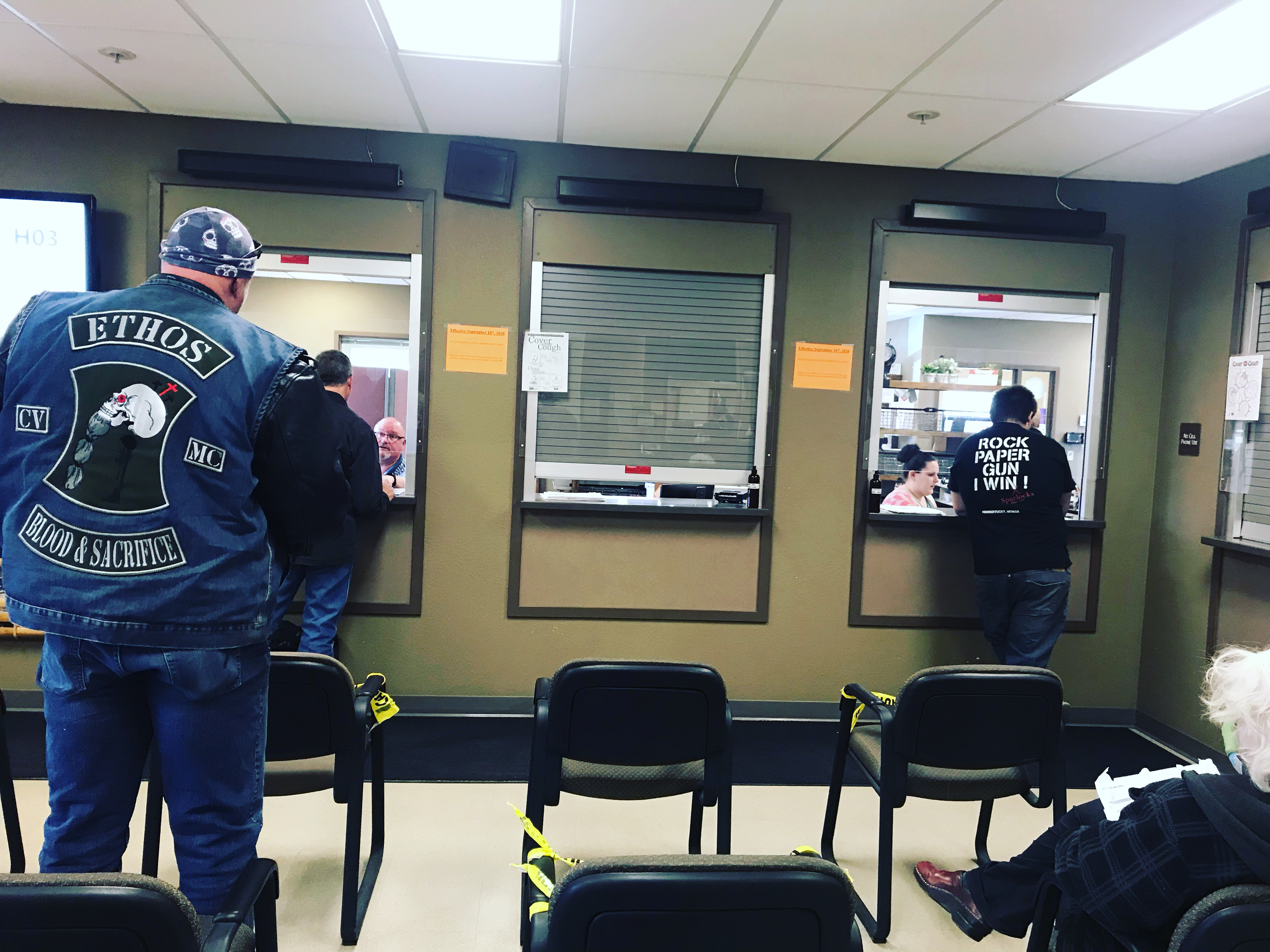
by Laura Munson | Mar 14, 2021 | Musings
This week…it finally happened:
I got out into the actual world of “adulting” as my twenty-year olds call it, versus the virtual one. In one year I haven’t been on one flight. I haven’t gone into one government building, one box store, one large supermarket. I have a “town day” and that’s Thursdays and it consists of going to a small market for groceries, a Pilates studio for a one-hour private session since that’s all they’re offering right now, the drive-thru lane at the post office and at the bank, and once a month to the drive-thru at the credit union to pay my mortgage. Then back home to my world of, shall we then call it, “hermiting.” But this week I had to emerge because I had to go to the DMV to get license plates. I’d put it off for long enough and my temporary plates were about to expire. I really didn’t want to go to the DMV. I really didn’t want to be around humanity for obvious pandemic reasons, but also because I’ve grown to like my isolated life. I feel safe in it: my land and my house and my pantry and my commute from bed to office (yes I finally got out of my bed). I’ve liked the peace of a pandemically paused world. But damnit, I had to go to the polar opposite place from my little sanctuary: the DMV. And I dragged myself, cursing, all the way there.
It wasn’t the sort of get-in-and-out-quick situation that I’ve been living for the last year. I had to wait. Of course I did. That’s the nature of the DMV. You pick a number. And you wait, smack dab in the throng of humanity. I haven’t waited anywhere in a year unless I’ve been in my truck. In this case, we were waiting in the parking lot staring at a sign with numbers on it until our number got close and then we were allowed inside. My number was H15. They were on G39. I groaned. And a maskless guy wearing a skull cap and a leather jacket that said Blood and Sacrifice with a bleeding skull said, “It’s moving pretty slow.” I hoped that he wasn’t the sort to go into the DMV without a mask, never mind Congress. I re-adjusted mine, snug.
Then another maskless man wearing a T-shirt that said Rock Paper Guns I WIN walked toward me and didn’t stop at six feet. Smiling, he said, “Looks like we made it through winter. That was a long one. My driveway is an ice-skating rink this time of year.” Talking winter to a Montanan is like talking rain to a Londoner. “Mine too,” I said, backing up a few steps. Everyone else chimed in about their driveways, the masked and the maskless. It felt like the first blush of ice beginning to melt.
Then a woman in a neat sweater and pleated pants, wearing a paisley mask that matched her blouse, came up to me and gave me her unused number H5. I almost started crying. It was like she’d given me the vaccine itself. “I’ll pass it on,” I said. “Your random act of kindness.” She smiled and climbed into her white, clean, SUV.
And I started to get a feeling low in my belly that I’d forgotten all about. The feeling of being part of the collective.
Not just heads on a screen but real live moving whole bodies, regardless of our differences. Everyone is the same at the DMV. And though I wished everyone would please mask up until this thing is truly over, whether you’re “sick of it” or not…I was still shockingly glad to be standing in that exact parking lot.
And then it got sort of…well…fun. Because why not? Why not play a little? After the year we’ve had. Why not treat a moment like this when you are required to be part of the collective a little like you’re waiting for a hot dog at Wrigley Field or Fenway Park. And you all really love baseball. Even though you might not agree with the ump’s calls. Maybe it reminds you of your grandfather and summer and being a kid. I bet these guys had grandfathers. I bet they like baseball. I bet they miss baseball. Maybe they’d come to one of my son’s games over the years, even. I’d seen all sorts of interesting T-shirts and jacket decals in those stands. Still, we cheered pretty much the same.
The sign said for the H1-H10 to come on inside. I ran my hand under the hand-sanitizer and went inside the DMV. It was almost sacramental. Almost.
Apparently H3 and H4 had had other things to do because they were no-shows so my turn came fast. The guy at the window was chatty. I asked him if there was a license plate that raised money for Glacier National Park or endangered animals. He said, “If you get the endangered animals one it’s harder for law enforcement to read it. There’s a grizzly bear on it and their lights glare up against it and they can’t see the numbers. Plus the grizzly bear is cool. It’s spendy though. Forty bucks.” Sold! Even though he didn’t mention anything about how my forty bucks helped endangered animals. I felt like I was shoe shopping. I haven’t been shopping for much more than chicken, spinach, potatoes, and box wine for a year. Now the stirring in my belly was ringing in my ribs. Random acts of kindness. Random chats with strangers. I’d missed it so!
I didn’t want it to end.
And the people in the waiting room didn’t seem to mind. They chimed in. They wanted the bear too. We joked about the license saying Dan before the number. A woman wearing a sequin mask like it was Carnivale in Venice asked me if my truck is a man or a woman. And I said, “A woman, of course.” And she said, “Well you can call her Danielle then.” That made the guy in the Blood and Sacrifice leather jacket laugh. He still wasn’t wearing a mask even though it said No Entrance Without a Mask on the door. I almost said something, but then I saw the bleeding skull on his leather lapel and realized that I was wearing a tie dye mask and that maybe I should leave it alone. I tend to get into trouble when it comes to decency and I really didn’t want trouble with this guy. Leave that to the chatty guy at the counter behind the bullet proof glass.
The maskless guy smiled at me and said, “Say hi to Danielle.” He had a nice smile. It was nice to see a smile. I smiled back. Why not? When I went to the door I saw some other people not wearing masks in jackets that matched his. Must be his buddies. I reached in my pocket and pulled out my original number and said, “Anyone want H15?” One of them said, “I’ll take it.” And I said, “Be sure to pass it on! We need random acts of kindness more than ever. Oh, and you better put on your mask. They’re enforcing it.”
I felt like the freaking mayor. I couldn’t stop.
There was a woman in a full army uniform standing in the parking lot. I said, loudly, “Thank you for your service!” She was wearing a mask but I could see her smile in her eyes.
When I got in my truck I realized my heart was pounding in a way that it hasn’t for a year. Like I’d done something. Been something. Was a part of something. Something that normally I avoid like the plague. Well, the plague is here and so I guess pretty much full house arrest for a year is due diligence enough. Fauci says to only go out for essentials and travel only for emergency. I sat there in the truck thinking about where I could go next that felt “essential.” I had half a tank of gas. How about the gas station? I hate going to the gas station but Maybe my buddy Murray would be working and I could keep feeling this way. Murray always hollers “Munson!” when I walk in like “Norm!” at Cheers. He has the exact voice of Frosty the Snowman in the Christmas TV cartoon when he says, “Happy birthday!” after being reconstituted. Murray always makes me smile. Maybe I could tell him about my grizzly bear license plates and he’d think I was cool. Murray gave me a blown glass horse once. It was the kindest random act of kindness I’ve ever received. I cherish that horse. But if he gave me that blown glass horse today…I might melt right there on the gas station floor that has said Caution Wet with an orange cone for the thirty years I’ve lived here. So I went to the gas station and pumped my gas and saw the top of Murray’s head inside and I realized I had no reason to go inside when I could pay right there, but I really wanted an excuse to hear “Munson!” I looked at the signs on the gas station window and one of them, a sign I’d glanced past for thirty years, actually came into focus. Chester’s Fried Chicken. That’s right. There’s fried chicken inside the gas station. I’ve never eaten that fried chicken. I’ve never really bought hot food at a gas station ever. Maybe a Kit Kat or something. Suddenly gas station fried chicken sounded really good. I figured it probably wasn’t locally sourced and organic but…
I went in and heard a masked and muffled “Munson!” and smiled and said, “Murray!” Then I ordered a piece of fried chicken and told Murray about my grizzly license plate and asked him if he thought that Danielle was a good truck name and we decided that it probably wasn’t. I told him I’d never named a car before. He said, “Aw, Munson, why not? Might as well have some fun in life. And that’s coming from an old man.” He did look older and I realized I hadn’t come into the gas station for a long time. “You should come in more often, Munson.” He looked truly sad. This year has been hard on all of us. So I said, “Well I might have to become a regular for that fried chicken.” He said, “It’s good. I’ve never touched the stuff but people say it’s good.” I waved at him, wishing he could see my smile.
And then I went outside and there was a guy at the pump who didn’t look very happy and his truck didn’t either. At all. Like this year had taken his heart and his home and maybe his soul too. And I said, “Hey I got an extra piece of fried chicken from inside. I haven’t touched it. Do you want it? It’s really good.” And he lit up and said, “Sure. Thanks.”
And I said, “Pass it on.”
And he said, “The chicken?” looking confused but willing.
And I said, “No. Just the random act of kindness.”
I wished then that my plates were actually on my car so I could feel like the cool, kind, grizzly, chick in her pick-up truck. Did I mention—the one thing I actually have bought during the pandemic besides organic chicken, spinach, potatoes, box wine, and new license plates is a new truck? My 2002 Suburban finally quit three days before Christmas. I’ve always had an SUV. I need a sturdy rig for my Montana lifestyle. I test drove ten SUVs. And then at the last place, I saw a used GMC Denali pick-up in the lot, said to the salesman, “What’s that?” and he said, “Only one of the best trucks ever.” So I got in, and it was love at first test-drive. I’ve never even heard of a GMC Denali and I’d never considered getting a pick-up truck. The character, Willa, in my new novel has a pick-up truck. Maybe I just missed her. She and her women were good company for eight years.
As I drove home, not actually wanting to go home for once, I thought: Maybe I need to write a new novel. Create a new place and new characters to ride out the pandemic and feel the way I feel today. Connected. Warm and cozy inside my heart for having looked into people’s eyes, whether we share the same politics, precisely because we share the same humanity. Maybe I need to get out once in a while and not get so quickly back into my truck. Maybe it’s okay to linger just a little bit and exchange some words and acts. (Masked and social distanced, please). If even to the DMV and the gas station. Maybe I need to engage in live chats with random strangers instead of online comments on Instagram with Followers. Maybe I need to think about how good random acts of kindness feel and that there’s still the opportunity for them. Maybe I need to realize that just because we’re in a pandemic, there are still ways to connect with people in the most mundane yet human way. And that perhaps, just perhaps, I need to stop using the pandemic as an excuse to be a hermit.
You know what I mean?
- September 8 – 12
- September 15 – 19
- October 27 – 31
Contact Laura to set up an informational phone call: laura@lauramunson.com
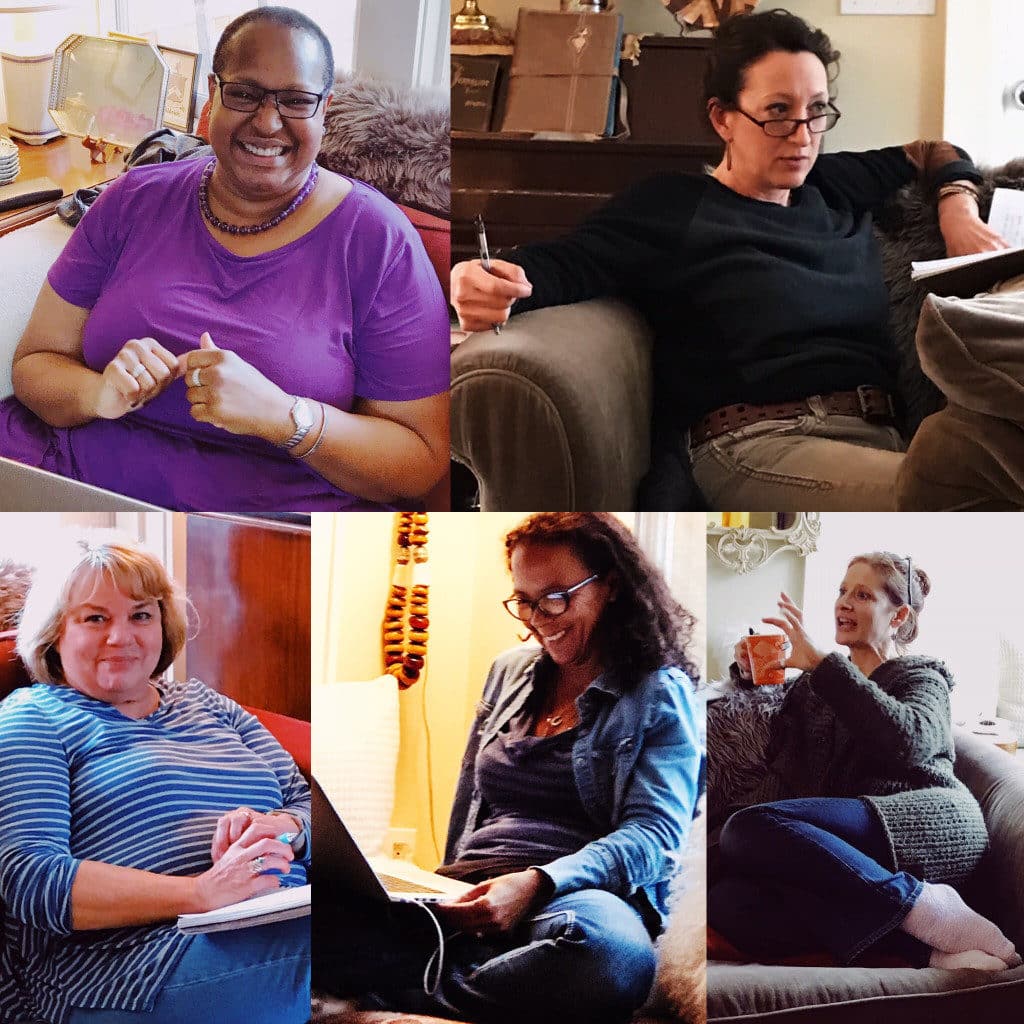
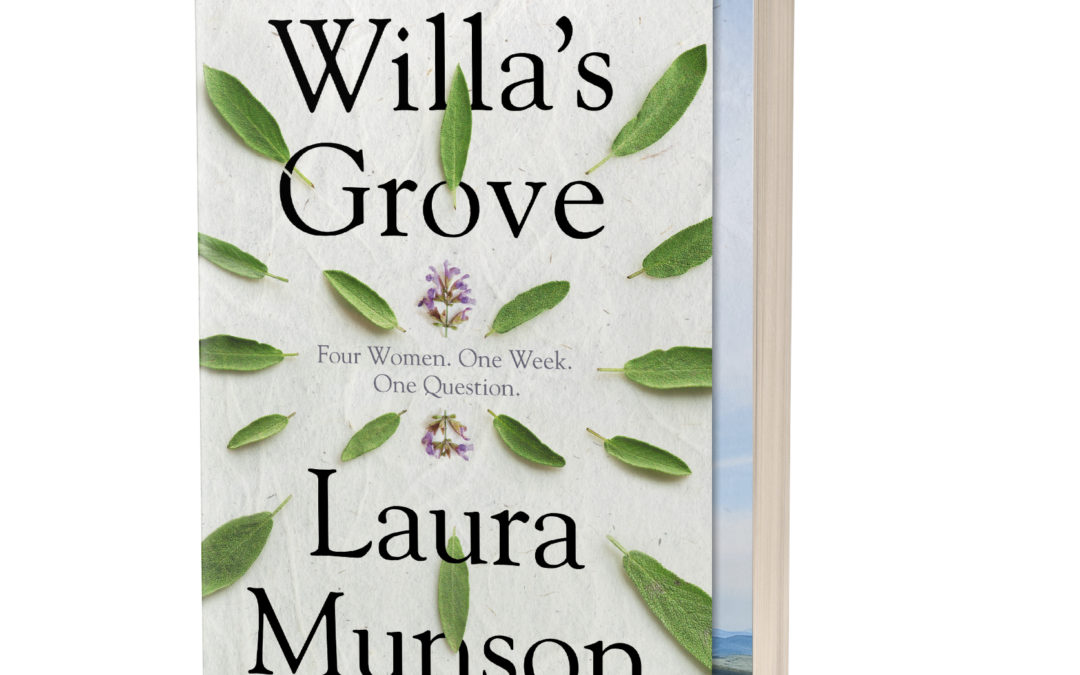
by Laura Munson | Mar 2, 2021 | Musings, The Writing Life
The Paperback Release of Willa’s Grove is TODAY!
My March Virtual Book Tour info is below… Join me “on the road!”

A year ago today in NYC on pub day!
An Ode to Migration:
Every year in early March, just when I start seriously considering moving to Mexico or Arizona or the Bahamas or Belize or…just anywhere that’s not Montana every-day-grey and encrusted…a sound emerges. And promises that the snow will melt and the birds will be back and the forest floor will bloom. It is the sound of the red-winged blackbird.
Every year I hear it and worry for it. “Oh no! It’s too soon! There is still so much impossible weather to come. The marsh is still frozen. There’s nothing there for you to make your nest. You will shiver and freeze in the trees. Come back in a month. Please!”
But every year, the red-winged blackbird holds court somewhere that I cannot see, scouting out my marsh for another season of nestlings and fledglings. Every year it chooses this place behind my house, as safe ground for its to-and-fro migration. This is the “to” part and for almost thirty years, it drops me to my knees. It has chosen this place and exactly this time of year. So who am I not to?
When the birds left last fall, after the way 2020 had behaved, I really wasn’t sure if they’d come back at all.
Could they sense that humanity was limping in a global pandemic? Did they want to get anywhere near our fear and our anger and our helplessness? And what about our warming planet? In 2020 style, would the climate crisis catapult and would they come back too early and find no food and die? I tried not to read articles like this one. But how could I not. The returning birds are how I know how to hope. And if I feel that way, then I’m sure much of the limping world feels that way. “Hope is the thing with feathers,” after all.
We need our birds. I’m sure it’s much more than humans which needs them. The whole eco-system needs them. But I’m not going to pretend to be a scientist. I just know that when birds fly through my world, I can believe in its goodness and its future. I wrote much of my novel, Willa’s Grove, on my screened porch by the marsh, listening to red-winged blackbirds, and so many others: ruby-crowned kinglets, nuthatches, western tanager, robin, chickadees, varied thrush, Swainson’s thrush, sora. But the red-winged blackbird is the “king of the rushes” until it’s time to migrate. It’s no surprise then that Willa’s Grove is full of migration. One editor thought there were “too many birds in the book.” So I wrote in more.
Birds, especially migrating birds, are what we need to not just hope, but to understand movement and unity. When they pass over us, they are stitching us to another place on the globe.
If we look up, we can catch the thread, as the poet Naomi Shihab Nye writes in her poem Kindness. And if we catch the thread, they thread us together. I truly believe that. Not the same with airplanes.
 One year ago from today, I was revving up to be on a lot of airplanes, across the US, for two months. It was my publication day for Willa’s Grove. To celebrate, I sat in a New York City bistro eating bacalao, white bean cassoulet, and sipping on a glass of French rose. People were talking about this thing called Covid, but way over in China. And Italy. Not really in the US. I mean…a global pandemic? In the US? People had things to do and places to go and people to see and New York City was as forward moving as usual. I asked the waiter to take a photo of me. I look very happy in that photo. I finished lunch and went to the iconic Strand Bookstore, and lo…there was my novel. And my memoir too. I signed them and asked the bookstore clerk to take a photo of me. I look so happy in that one too. That night I did my first event. It was full of fans and friends and Haven Writing Retreat alums. I got to read from my book and see its messages coming alive. I got to sign books with personalized, loving words. I was in my element. I’d wanted to publish a novel for decades. It took me eight years and nineteen drafts to get Willa’s Grove where it needed to be. The picture from that night’s event is the happiest of all.
One year ago from today, I was revving up to be on a lot of airplanes, across the US, for two months. It was my publication day for Willa’s Grove. To celebrate, I sat in a New York City bistro eating bacalao, white bean cassoulet, and sipping on a glass of French rose. People were talking about this thing called Covid, but way over in China. And Italy. Not really in the US. I mean…a global pandemic? In the US? People had things to do and places to go and people to see and New York City was as forward moving as usual. I asked the waiter to take a photo of me. I look very happy in that photo. I finished lunch and went to the iconic Strand Bookstore, and lo…there was my novel. And my memoir too. I signed them and asked the bookstore clerk to take a photo of me. I look so happy in that one too. That night I did my first event. It was full of fans and friends and Haven Writing Retreat alums. I got to read from my book and see its messages coming alive. I got to sign books with personalized, loving words. I was in my element. I’d wanted to publish a novel for decades. It took me eight years and nineteen drafts to get Willa’s Grove where it needed to be. The picture from that night’s event is the happiest of all.

At that night’s event, I read a section about Willa finding a migrating dead snow goose on the banks of Freezeout Lake, with its heart cut out of it and placed on its white breast. About how Willa, a newly grieving widow, lies down next to it, and weeps, and falls asleep out of the emotional exhaustion that grief requires of its griever. And she falls asleep also out of surrender. That gutted heart is hers too. I hadn’t planned on reading that section, but for some reason, in that New York City packed venue, I felt the need to speak migration. And how we can sometimes lose our way, and even our lives. Never could I have imagined what was about to happen.
As Covid swept the US and the world and my book tour went virtual, I kept reading that excerpt. I wrote book club questions and included this one: Why do you think that there are so many birds in the book? People responded so differently than they did the night of the NYC event. It was like 2020 was the year they learned to look up. And maybe even catch the thread.
A year later, as my paperback version of Willa’s Grove makes its migration across the globe, I want to imagine it casting its own thread of hope.
Its messages are exactly what we need right now. That we need to come together. We need to tell our stories. We need to create the space to listen to each others’ stories. We need to talk and hear about dashed dreams and new ones. We need to be gentle with one another and to learn the lessons of the woods. And yes, birds.
Each morning I go out on my front porch, no matter the weather, and I stand there and say, “Thank you for this day. May I be _______ in it.” Sometimes the word “joyful” comes out. Sometimes “graceful.” Or “peaceful.” Or “grateful.” I’m never sure what word will emerge. But the word that comes out is the word I fasten to my day. The thread I catch. Words are that way too. They migrate.
This morning, as my book migrates in its new paperback form, when I went out to the front porch and said my morning words, something of a miracle happened. As I spoke “Thank you for this day. May I be…” the word that came out of my mouth was “hopeful.” And just as I said that word…guess what I heard? The first springtime call of the red-winged blackbird.
“Hope is the thing with feathers,” indeed.
I hope that you will catch the thread of the birds, the words, and the women of Willa’s Grove.
Yours,
Laura
“Dear Laura, I have been reading Willa’s Grove and it has been a hug in the form of a book. It has made me realize the large void in my life this last year. So thrilled that things are slowly moving ahead. Just wanted to say hello and thank you for your book. I am enjoying it so much.”
—Heidi Okada (a loving reader who reached out to me in this loving way. She has certainly caught the thread.)
My Virtual Spring Book Tour starts this Thursday
with the fantastic author advocate, podcaster, and author
Zibby Owens!
Click here for more info about our event.
I’d love to “see” you out there on the road! My March events are listed in my Events Calendar on my website here.
April events coming soon…

|
I am thrilled to announce…
Haven Writing Retreats will resume this fall!
Click here for more info. After all we’ve been through…you KNOW you need this!
Email me to arrange a call and learn more: laura@lauramunson.com
- September 8 – 12, 2021
- September 15 – 19, 2021
- October 27 – 31, 2021
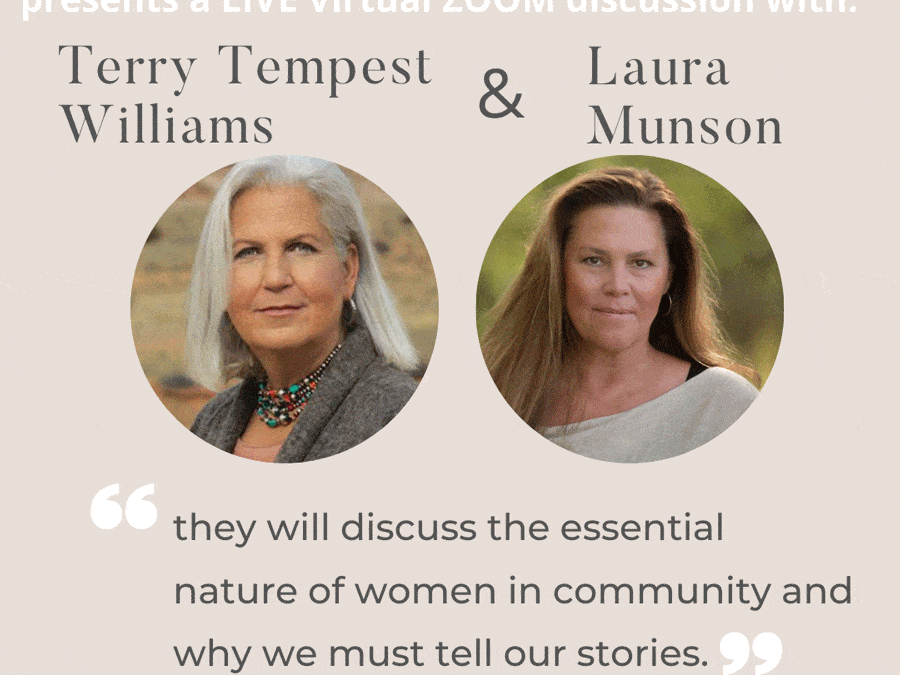
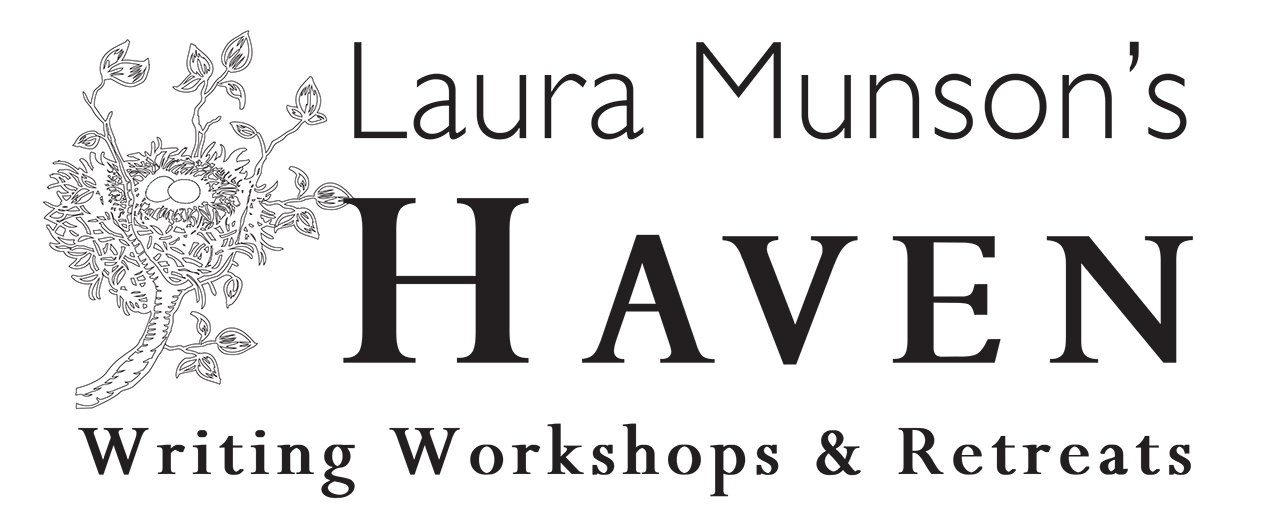


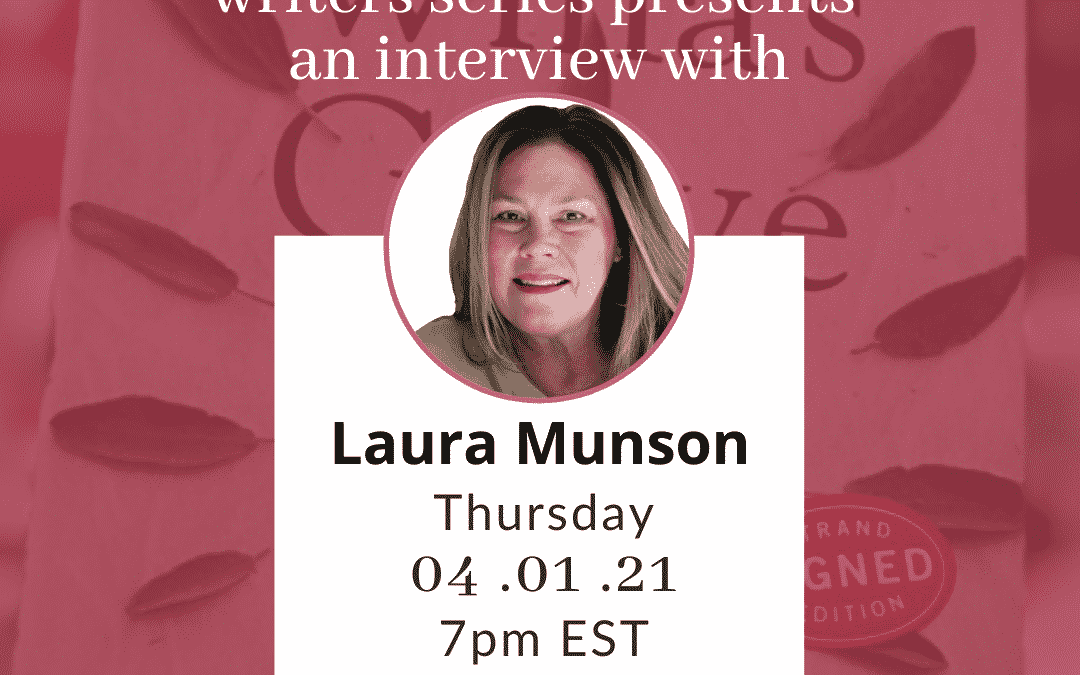
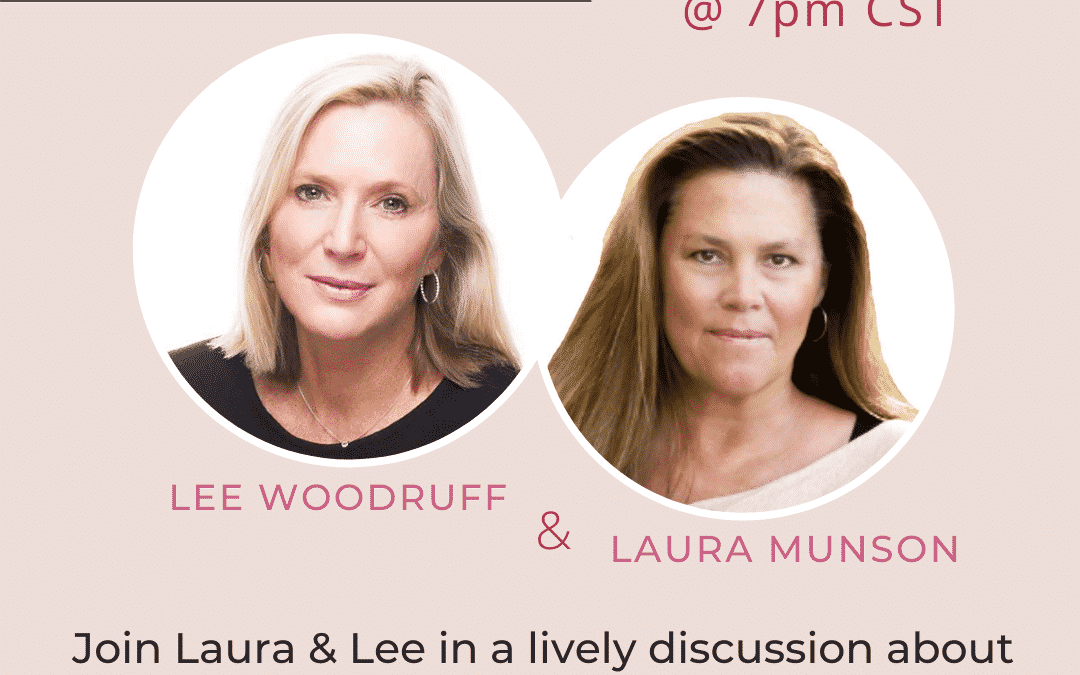






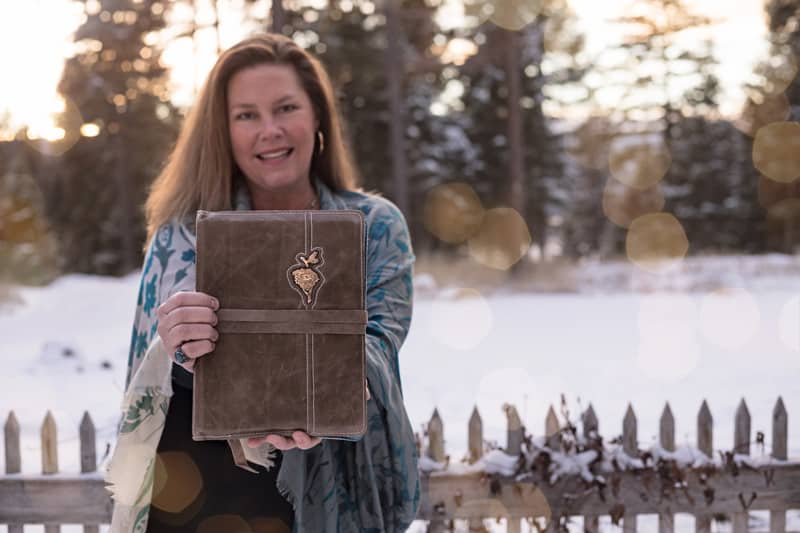
Recent Comments